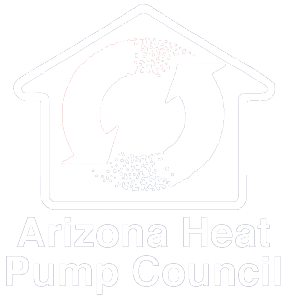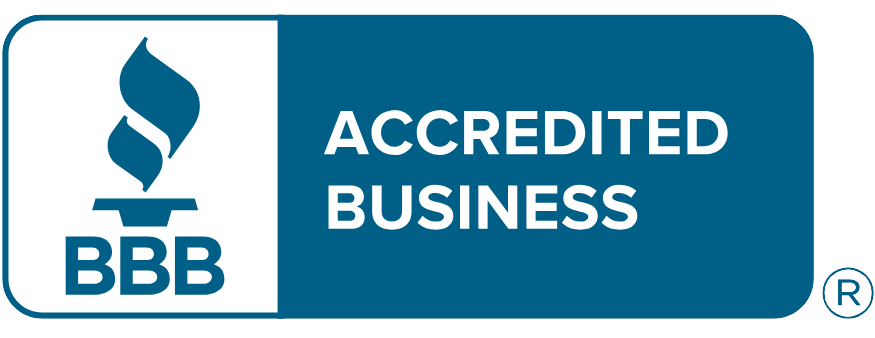When you’re facing an HVAC emergency in Peoria, don’t wait to seek help. 24/7 repair services are vital for maintaining comfort and safety, especially during extreme weather. Common emergencies include cooling failures, heating malfunctions, and carbon monoxide leaks. Look for a provider with proper licensing, insurance, and quick response times. Emergency repairs can be costly, so consider setting aside a fund of at least $500. Peoria’s climate demands efficient HVAC systems year-round, making regular maintenance essential. Remember, a malfunctioning system can pose serious health risks. By understanding the importance of prompt repairs, you’ll be better prepared to handle any HVAC crisis.
Key Takeaways
- Emergency HVAC services in Peoria offer immediate assistance during cooling failures, especially crucial in hot summers.
- Reliable 24/7 providers ensure swift response times, typically within 1-2 hours, to address urgent HVAC issues.
- Choosing a licensed and insured HVAC service protects homeowners from financial and legal risks during emergency repairs.
- Preventive maintenance, including regular filter changes and biannual check-ups, can help avoid sudden HVAC failures.
- Quick action on HVAC emergencies prevents health risks associated with extreme heat and poor indoor air quality.
Why 24/7 HVAC Matters
Your home’s comfort doesn’t follow a 9-to-5 schedule, and neither should your HVAC service. 24/7 HVAC repair availability guarantees you’re never left in the lurch when your system fails unexpectedly. This round-the-clock service guarantees your family’s safety and well-being, regardless of when problems arise.
HVAC emergencies can occur at any time, often during extreme weather conditions when your system is under the most stress. A 24/7 service provider is equipped to handle these vital situations promptly, preventing potential hazards and minimizing discomfort. Technicians with emergency training are prepared to diagnose and resolve issues efficiently, even in challenging circumstances.
Customer satisfaction is paramount in the HVAC industry, and offering 24/7 service demonstrates a commitment to your needs. It provides peace of mind, knowing that help is always just a phone call away. This reliability can be essential during heatwaves or cold snaps when a functioning HVAC system is important for health and safety.
Common HVAC Emergencies
Understanding common HVAC emergencies can help you identify when it’s time to call for 24/7 service. Cooling failures during hot summer months can quickly change your home into an unbearable environment. Signs include warm air blowing from vents, inadequate cooling, or complete system shutdown. Don’t ignore these symptoms, as they can lead to more severe issues if left unaddressed.
Heating malfunctions are equally important, especially during cold winters. If your furnace isn’t producing heat, makes strange noises, or cycles on and off frequently, you’re likely facing an emergency. Carbon monoxide leaks from faulty heat exchangers pose a serious safety risk and require immediate attention.
Other HVAC emergencies include refrigerant leaks, which can cause system inefficiency and potential health hazards. Electrical issues, such as tripped circuit breakers or burnt-out capacitors, may also necessitate urgent repairs. Frozen evaporator coils can lead to water damage and system failure.
When encountering these problems, it’s essential to shut off your system and contact a professional HVAC technician immediately. Attempting DIY repairs can be dangerous and may exacerbate the issue. Prioritize your safety and comfort by relying on expert 24/7 HVAC services.
Signs You Need Immediate Repair
Recognizing signs that your HVAC system needs immediate repair can prevent minor issues from escalating into major breakdowns. Pay attention to unusual noises like grinding, squealing, or banging, as these often indicate mechanical problems requiring urgent repairs. If you notice a sudden spike in your energy bills without increased usage, your system may be working inefficiently due to a malfunction.
Inconsistent temperatures throughout your home or difficulty maintaining the desired temperature are clear overheating symptoms that shouldn’t be ignored. Strange odors, particularly musty or burning smells, can signal mold growth or electrical issues that demand immediate attention. Frequent cycling on and off, known as short cycling, is another red flag that your HVAC system needs professional assessment.
Watch for visible signs of trouble, such as water leaks around the unit or ice formation on the evaporator coils. If you experience weak airflow from vents or notice excessive dust accumulation, these could indicate blocked ducts or failing components. Don’t hesitate to call for urgent repairs if you observe any of these signs, as prompt action can prevent safety hazards and costly replacements.
Choosing a Reliable Service Provider
When selecting an HVAC repair service in Peoria, you’ll want to contemplate several key factors. Look for a provider with extensive experience and proficiency in handling various HVAC systems. Ascertain they’re properly licensed and insured, and inquire about their emergency response times to gauge their reliability during critical situations.
Experience and Expertise
To select a reliable HVAC repair service in Peoria, you’ll need to evaluate the experience and knowledge of potential providers. Look for companies with a proven track record of successful repairs and installations. Check their years in business and the range of HVAC systems they’ve worked on. Customer testimonials can offer important perspectives into a company’s skills and reliability.
Don’t hesitate to inquire about technicians’ qualifications and industry certifications. NATE (North American Technician Excellence) certification is a recognized standard in the HVAC industry. Ask if the company’s technicians undergo regular training to stay updated on the latest HVAC technologies and repair techniques.
Experience in handling emergencies is essential. A seasoned provider will have protocols in place for quick response times and efficient problem-solving. They should be able to diagnose issues accurately and provide clear explanations of the necessary repairs.
Lastly, consider the company’s familiarity with local building codes and regulations. An experienced HVAC service in Peoria will guarantee that all repairs and installations comply with these standards, ensuring your safety and avoiding potential legal issues.
Licensing and Insurance
A critical aspect of choosing a reliable HVAC repair service in Peoria is verifying their licensing and insurance. Before hiring any contractor, make certain they meet all state and local licensing requirements. In Illinois, HVAC contractors must hold a valid license from the Department of Financial and Professional Regulation. Ask to see their license and verify its authenticity through the state’s online database.
Insurance coverage is equally important. A reputable HVAC company should carry both general liability and workers’ compensation insurance. General liability protects you from potential property damage during repairs, while workers’ compensation covers injuries to technicians working on your property. Don’t hesitate to request proof of insurance and contact the insurance provider to confirm its validity.
Be wary of companies that can’t or won’t provide licensing and insurance information. Working with unlicensed or uninsured contractors puts you at risk financially and legally. Always prioritize your safety and protection by choosing a fully licensed and insured HVAC repair service. This due diligence makes certain you’re working with professionals who meet industry standards and have the necessary safeguards in place to protect both you and their employees.
Emergency Response Times
Swift response times are a key factor in selecting a reliable HVAC repair service in Peoria. When your system fails, especially during extreme weather conditions, you need a provider that prioritizes emergency calls. Look for companies that offer 24/7 service availability, ensuring you’re not left without heating or cooling for extended periods.
Evaluate a company’s response efficiency by asking about their average emergency response times. Reputable services often aim to reach you within 1-2 hours of your call. Some may even offer guaranteed response times, providing peace of mind in urgent situations.
Consider how the company manages their emergency calls. Do they have dedicated emergency technicians? This can greatly impact their ability to respond quickly. Ask about their dispatch system and how they prioritize calls.
Don’t forget to inquire about after-hours service fees. While emergency services may cost more, transparent pricing helps you make informed decisions. Some companies offer emergency service plans, which can be cost-effective if you anticipate potential after-hours needs.
Cost Considerations for Emergency Repairs
When you’re faced with an emergency HVAC repair, cost considerations can quickly become a concern. Understanding repair costs and emergency budgeting can help you prepare for unexpected breakdowns. While emergency services often come at a premium, they’re essential for restoring comfort and safety to your home.
Here’s a breakdown of potential emergency HVAC repair costs:
| Service Type | Cost Range | Factors Affecting Price |
| After-Hours Call | $100 – $300 | Time of day, holiday rates |
| Diagnostic Fee | $75 – $200 | Complexity of issue |
| Repair Labor | $50 – $150/hour | Technician experience, job difficulty |
To minimize financial stress during emergencies, consider setting up an emergency HVAC fund. Aim to save at least $500 to cover initial diagnostic fees and minor repairs. For more extensive issues, having access to a credit card or financing options can provide a safety net.
Preventing Future HVAC Breakdowns
While emergency repairs can’t always be avoided, proactive maintenance is key to reducing the likelihood of unexpected breakdowns. Schedule routine maintenance checks with a professional HVAC technician at least twice a year. These visits allow experts to identify and address potential issues before they escalate into major problems.
Keep your HVAC system clean by regularly changing air filters, typically every 1-3 months depending on usage. Clean or replace outdoor unit filters and remove debris from around the unit to guarantee proper airflow. Inspect ductwork for leaks or damage, and seal any gaps to maintain energy efficiency.
Monitor your system’s performance by paying attention to unusual noises, odors, or fluctuations in temperature. Address these issues promptly to prevent further damage. Consider installing a programmable thermostat to optimize your HVAC system’s operation and reduce unnecessary strain.
Invest in proper insulation for your home to minimize heat transfer and reduce the workload on your HVAC system. Keep vents and registers clear of obstructions to maintain proper airflow throughout your home. By implementing these preventive measures, you’ll enhance your system’s longevity, improve energy efficiency, and reduce the likelihood of unexpected breakdowns.
Peoria’s Climate and HVAC Demands
Understanding Peoria’s climate is essential for effective HVAC management. You’ll face hot, humid summers and cold winters, putting significant stress on your system year-round. Peoria humidity can reach oppressive levels, demanding efficient dehumidification from your AC. In winter, you’ll need reliable heating to combat freezing temperatures.
Your HVAC system must work harder in these extreme conditions, increasing wear and tear. To guarantee it can handle Peoria’s climate demands, prioritize seasonal maintenance. Schedule professional tune-ups before peak seasons: spring for AC and fall for heating. This proactive approach helps prevent breakdowns when you need your system most.
During summer, set your thermostat slightly higher to reduce strain on your AC. In winter, lower it a few degrees to ease the burden on your furnace. Use ceiling fans to improve air circulation and comfort without overworking your HVAC. Install a programmable thermostat to optimize energy use based on your schedule and Peoria’s daily temperature fluctuations. Regularly change air filters to maintain efficiency and air quality, especially during high pollen seasons or dusty conditions.
Emergency Preparedness for Homeowners
Prepare for HVAC emergencies by assembling an essential kit with items like air filters, fuses, and basic tools. You’ll want to create a detailed action plan that outlines steps to take during common HVAC failures. Keep important contact information, including your trusted HVAC repair service, readily accessible as part of your emergency preparedness strategy.
Essential Emergency HVAC Kit
Homeowners should assemble an essential emergency HVAC kit to handle unexpected system failures. This kit should contain emergency supplies and HVAC tools that’ll help you address common issues or maintain comfort until professional help arrives.
Start with basic safety items: a flashlight, batteries, and work gloves. Include a digital multimeter to test electrical components and a thermometer to verify temperature readings. Stock your kit with HVAC-specific tools like a refrigerant gauge, screwdrivers, pliers, and wire strippers. Don’t forget air filters; having spares on hand guarantees proper airflow.
For quick fixes, keep electrical tape, duct tape, and zip ties in your kit. Include a can of compressed air to clean debris from coils and vents. Store a bottle of non-acid coil cleaner for removing buildup on evaporator and condenser coils. Add a programmable thermostat as a backup in case your primary unit fails.
Lastly, keep a list of emergency contact numbers, including your trusted HVAC technician in Peoria. By preparing this kit, you’ll be ready to tackle minor issues and maintain a safe, comfortable environment during HVAC emergencies.
Create an Action Plan
While having an emergency HVAC kit is a smart first step, it’s equally important to develop a thorough action plan for HVAC emergencies. Your plan should outline actionable steps to take when your system fails, ensuring you’re prepared for any situation.
Start by identifying potential HVAC issues and their corresponding solutions. Create a prioritized list of repair priorities, from simple fixes you can handle to complex problems requiring professional assistance. Include step-by-step instructions for basic troubleshooting, such as checking thermostat settings or replacing air filters.
Next, compile a list of trusted HVAC professionals in Peoria, including their contact information and emergency service hours. Research local cooling centers or alternative accommodations in case of prolonged outages during extreme weather.
Establish clear communication protocols with family members or housemates. Designate roles and responsibilities, such as who will contact the repair service or monitor weather updates. Include safety guidelines for operating portable cooling devices or managing heat-related health risks.
Regularly review and update your action plan, especially before peak heating and cooling seasons. Consider scheduling annual HVAC maintenance to prevent emergencies and keep your system running efficiently.
Health Risks of Malfunctioning HVAC
A malfunctioning HVAC system poses serious health risks to occupants. When your HVAC isn’t working properly, it can’t effectively control indoor air quality, leading to a buildup of pollutants, allergens, and excess humidity. These conditions create an ideal environment for mold growth and dust mite proliferation, which can trigger respiratory issues and allergic reactions.
In extreme heat, a failing air conditioner puts you at risk of heat exhaustion or even heat stroke. Symptoms include dizziness, headaches, nausea, and rapid heartbeat. Prolonged exposure to high temperatures can be particularly dangerous for the elderly, young children, and those with pre-existing health conditions.
Conversely, a malfunctioning heating system during cold weather can lead to hypothermia, especially in vulnerable populations. Carbon monoxide leaks from faulty furnaces are another significant concern, as this odorless gas can cause severe illness or death.
Regular HVAC maintenance and prompt repairs are essential for preventing these health hazards. If you notice any signs of HVAC malfunction, such as unusual noises, inconsistent temperatures, or poor air quality, don’t delay in seeking professional help to guarantee your safety and well-being.
Technology in 24/7 HVAC Services
Modern technology has revolutionized 24/7 HVAC services, making them more efficient and responsive than ever before. You’ll find that smart thermostats and remote monitoring systems are at the forefront of this technological advancement. These devices allow HVAC technicians to diagnose issues quickly and accurately, often before you even notice a problem.
With remote monitoring, your HVAC system’s performance is constantly tracked, guaranteeing ideal efficiency and early detection of potential failures. This proactive approach minimizes downtime and extends your system’s lifespan.
| Technology | Function | Benefit |
| Smart Thermostats | Temperature Control | Energy Savings |
| Remote Monitoring | System Diagnostics | Preventive Maintenance |
| Mobile Apps | Service Requests | Quick Response Times |
| GPS Tracking | Technician Dispatch | Efficient Service Routing |
You’ll appreciate the convenience of scheduling repairs through mobile apps, which provide real-time updates on technician arrival times. GPS tracking assures the nearest available technician is dispatched to your location, reducing wait times considerably.
These technological advancements not only improve service quality but also enhance your safety. By identifying potential hazards early, such as gas leaks or electrical issues, 24/7 HVAC services can prevent dangerous situations in your home or business.
Frequently Asked Questions
How Long Does a Typical HVAC Repair Service Call Take?
Repair time varies, but you can expect most HVAC service calls to take 1-2 hours. Service efficiency depends on the issue’s complexity. Technicians prioritize your safety, diagnosing problems quickly and explaining necessary repairs before proceeding.
Can I Perform Any HVAC Maintenance Tasks Myself?
A stitch in time saves nine. You can perform basic DIY HVAC maintenance tasks yourself. Change filters regularly, clean outdoor units, and check thermostat batteries. However, leave complex repairs to professionals for your safety and system longevity.
What’s the Average Lifespan of an HVAC System in Peoria?
Your HVAC system’s lifespan in Peoria typically ranges from 15-20 years. However, HVAC lifespan factors like maintenance and usage patterns can affect this. Peoria’s climate impact, with hot summers and mild winters, may also influence system longevity.
Are There Eco-Friendly Alternatives to Traditional HVAC Systems?
Yes, there are eco-friendly alternatives. You can opt for energy-efficient systems like geothermal heat pumps or solar-powered HVAC units. These employ renewable energy sources, reducing your carbon footprint while maintaining a safe and comfortable indoor environment.
How Often Should I Schedule Professional HVAC Maintenance?
You should schedule professional HVAC maintenance twice yearly for seasonal check-ups: spring for cooling and fall for heating. Regular maintenance benefits include improved efficiency, extended equipment life, and early detection of potential safety hazards in your system.
Conclusion
Don’t let HVAC issues leave you in a sweat. Remember, “An ounce of prevention is worth a pound of cure.” Regular maintenance can prevent many emergencies, but when they occur, Peoria’s 24/7 HVAC services are your lifeline. Choose a reputable provider, understand potential costs, and stay prepared. With advanced technology and skilled technicians available round-the-clock, you’ll quickly restore comfort to your home, safeguarding your health and well-being.






